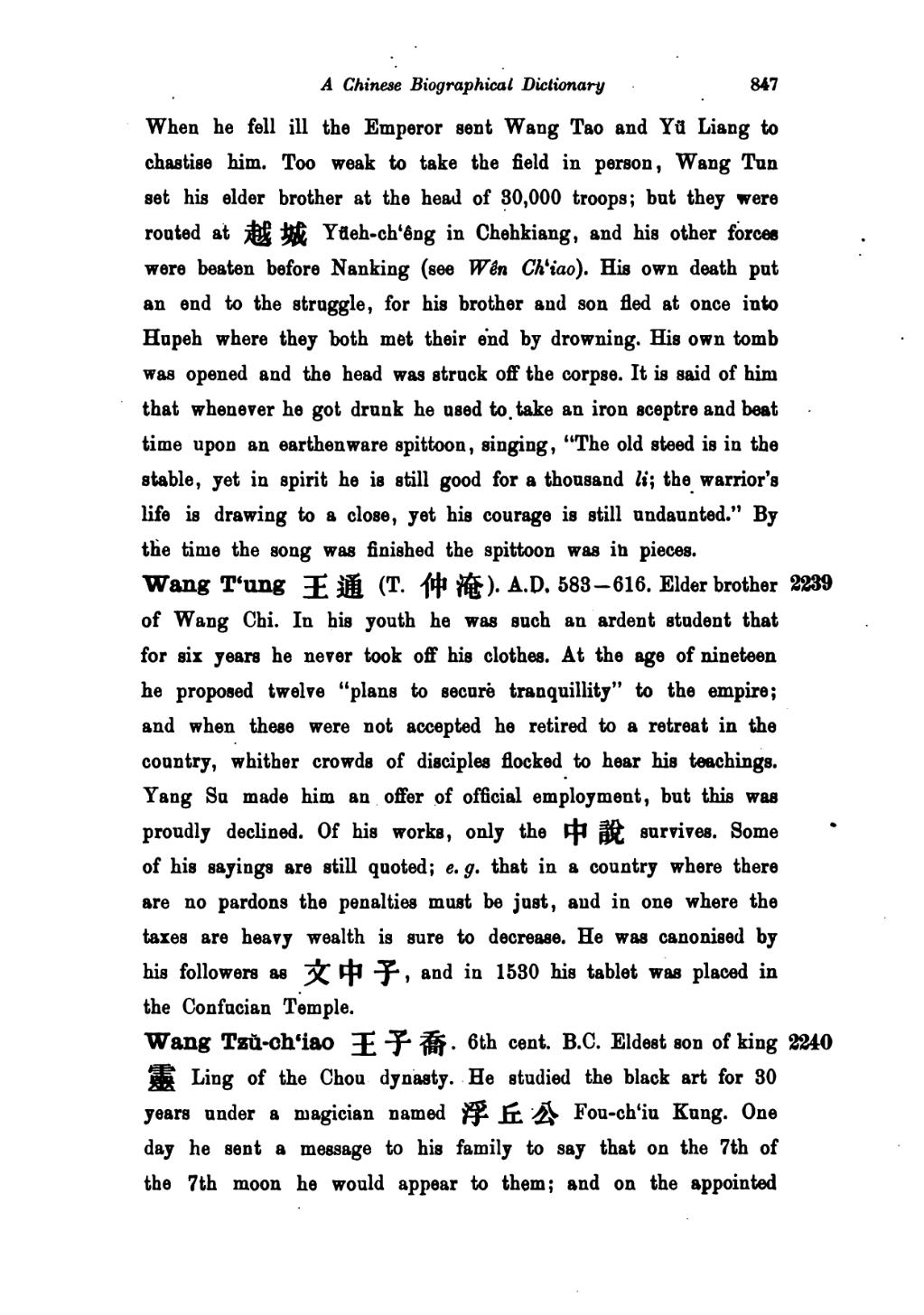When he fell ill the Emperor sent Wang Tao and Td Liang to chastise him. Too weak to take the field in person, Wang Tun set his elder brother at the head of 80,000 troops; but they were rooted at 越城 Yüeh-ch'êng in Chehkiang, and his other forces were beaten before Nanking (see Wên Ch'iao), His own death put an end to the struggle, for his brother and son fled at once into Hnpeh where they both met their end by drowning. His own tomb was opened and the head was struck off the corpse. It is said of him that whenever he got drunk he used to. take an iron sceptre and beat time upon an earthenware spittoon, singing, 'The old steed is in the stable, yet in spirit he is still good for a thousand li; the warrior's life is drawing to a close, yet his courage is still undaunted." By the time the song was finished the spittoon was in pieces.
Wang T'ung 王通 (T. 仲淹). A.D. 583-616. Elder brother 2239 of Wang Chi. In bis youth he was such an ardent student that for six years he never took off his clothes. At the age of nineteen he proposed twelve "plans to secure tranquillity" to the empire; and when these were not accepted he retired to a retreat in the country, whither crowds of disciples flocked to hear his teachings. Yang Su made him an offer of official employment, but this was proudly declined. Of his works, only the 中說 survives. Some of his sayings are still quoted; e.g. that in a country where there are no pardons the penalties must be just, and in one where the taxes are heavy wealth is sure to decrease. He was canonised by his followers as 文中子, and in 1530 his tablet was placed in the Confucian Temple.
2240 Wang Tzŭ-Ch'iao 王子喬. 6th cent. B.C. Eldest son of king 靈 Ling of the Chou dynasty. He studied the black art for 30 years under a magician named 浮丘公 Fou-ch'iu Kung. One day he sent a message to his family to say that on the 7th of the 7th moon he would appear to them; and on the appointed

